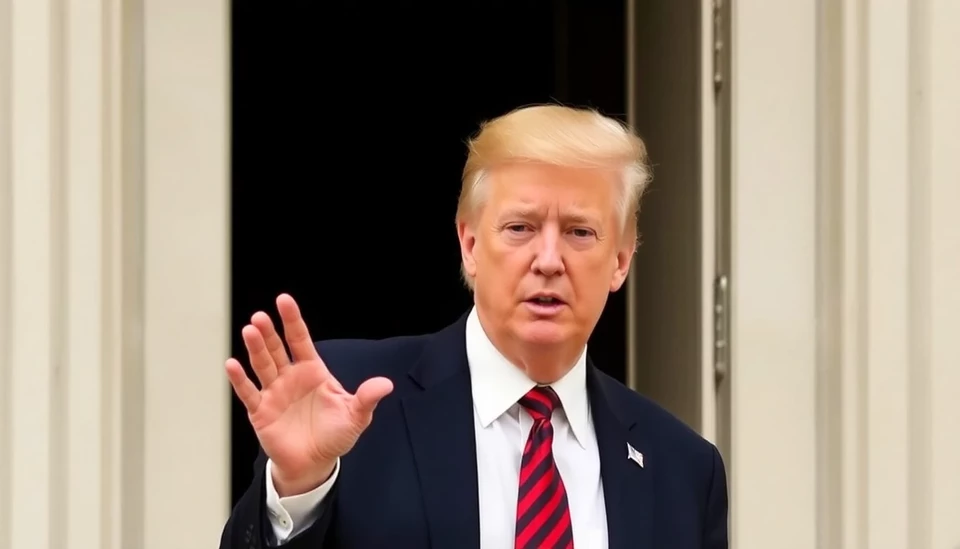
The independence of the Federal Reserve (Fed) is under increasing scrutiny as former President Donald Trump publicly reiterates his desire to see Jerome Powell removed from his position as chairman. This situation has sparked a broader discussion about the implications of political influence on the central bank's functions and the potential threats posed to its autonomy.
Trump, who has a complicated history with the Fed, has vocalized his dissatisfaction with Powell in several public forums. The former president previously leveraged his authority to appoint Powell in 2018 but has since criticized the Fed's strategies surrounding interest rate hikes and inflation control. Trump’s comments have raised alarms among economists and financial experts concerned about the delicate balance of power that the Fed must maintain in order to effectively manage the nation’s economic policies.
The Fed's primary mandate is to ensure price stability and maximize employment, roles that require it to operate free from political pressure and influence. This independence is crucial to maintaining public confidence in the institution, particularly in volatile economic climates. However, given Trump's past encounters with the Fed’s policies, his current threats pose a significant challenge to this essential independence.
Experts warn that the political meddling Trump is suggesting could undermine the integrity of the Fed. Should a sitting president attempt to remove the Fed chair for policy disagreements, it could lead to a broader crisis of confidence in the Fed, making it difficult for policymakers to formulate effective responses to economic challenges. Such instability is something many saw during Trump’s presidency, particularly when he criticized Powell for not being aggressive enough with interest rates.
Trump’s influence extends beyond his public remarks; he carries considerable weight within the Republican Party, where his views can shape the opinions of other legislators. This dynamic may put pressure on future Fed chairs, regardless of who sits in the White House. The fear is that future administrations may feel emboldened to challenge the Fed's autonomy based on past instances, influencing monetary policy that should ideally remain insulated from partisan politics.
The economic implications of undermining Fed independence could be dire. Financial markets react sensitively to perceived instability and may struggle if there’s a precedent set where monetary policy can be swayed by political interests. The outcomes could manifest as increased volatility in investment markets, impacting everything from mortgage rates to consumer loans, ultimately leading to a disordered economy.
In light of these developments, stakeholders, including federal lawmakers and economic analysts, are calling for a cautious approach regarding the Fed. They emphasize the importance of safeguarding its independence to ensure the effective governance of U.S. monetary policy in good times and bad. The consensus is that any threat to the Fed's autonomy is not just a matter of personnel but a critical issue that could redefine the boundaries between politics and economics in the United States.
As the conversation around Jerome Powell and the Federal Reserve intensifies, it is essential for citizens and lawmakers alike to remain vigilant about the pressing implications this has on national policy and the economy at large. The relationship between the presidency and the Fed must be handled with care, preserving the integrity of this institution for future generations.
#Trump #JeromePowell #FederalReserve #Economy #FinancialIndependence #MonetaryPolicy #PolicyDebate #PoliticalInfluence #EconomicStability
Author: Rachel Greene




